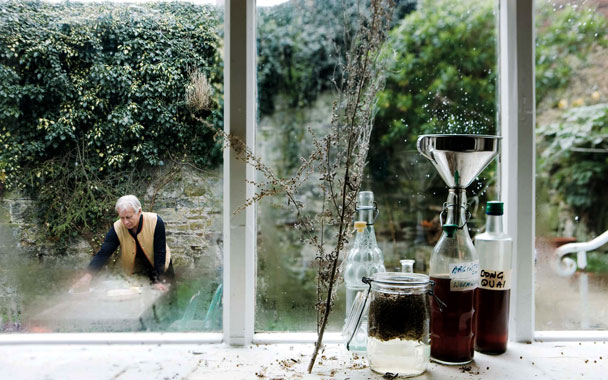Let’s be honest: It’s near impossible to imagine how we as individuals can do anything significant to stop global warming. You can recycle this magazine or turn down your heat in winter, but as for believing such a daunting problem can actually be solved—well, that’s for dreamers. Craig Sams, one of the world’s leading eco-entrepreneurs, has one suggestion, however: Eat dark chocolate.
It would be easy to dismiss that idea as a cynical marketing ploy. Sams is, after all, the founder of Green & Black’s, the company that introduced the $4 organic dark chocolate bar to the United States. But as the recently retired three-term chairman of Britain’s highly influential Soil Association, he does command some respect. He helped turn what was once a sleepy $500,000-a-year organization into one with an annual budget of $20 million, and he made it the guardian of the rigorous organic standards that now govern the U.K.’s food supply. He’s not a religious man (ex-hippies tend not to be), but he does have faith in our ability to reverse the degradation of the environment by altering what we eat. “In the 1960s,” he says, “people were meditating for world peace or joining the Weathermen, but I thought changing the food system would be the most revolutionary thing we could do.”
Hippies get a bad rap these days. But in terms of travel and certain eating habits, they actually got a lot right. They decamped to places like Goa, Phuket, Mendocino, and Kabul long before the tourists, marketers, millionaires, and Soviets invaded, and they discovered the virtues of brown rice, yogurt, and sugar-free jams well before those foods became staples. But it was during the reigns of Margaret Thatcher and Bush 41 that a few enterprising hippies cut their hair, washed their clothes, quit (okay, modified) their drug use, and revived the term “enlightened self-interest” to describe their unique form of spread-the-wealth capitalism. As Sams frames it, “I like to make a profit—it’s nature’s way of saying, ‘You’re doing something right.’ ”
The son of a Syrian American marine and a midwestern farm girl, Sams grew up in Nebraska, Los Angeles, and London and attended the Wharton Business School, where he may have spent as much time dropping acid (“It was legal then”), playing chess, and listening to John Coltrane as he did studying. The LSD apparently left most of his brain cells intact—he graduated on the dean’s list in 1966. Between his junior and senior years, he’d traveled from Tangiers to Kabul, and after getting his degree he settled in London. Soon after arriving there, he imported a few embroidered Afghani coats and sold them to a groovy shop on the Kings Road called Granny Takes a Trip. “I hope you’ve got a lot of those coats, mate,” the owner said to him one day, “because the Beatles just bought four of them.” When the coats appeared on the cover of Magical Mystery Tour, in 1967, Sams understood just how profitable being ahead of the curve could be.
Somewhere in his travels, Sams had contracted hepatitis, and in his attempts to heal himself, he discovered organic foods, and, in particular, the wheat-free, sugar-free, dairy-free diet known as macrobiotics. It wasn’t long before he’d opened a string of macrobiotic restaurants in Notting Hill, and, soon after, introduced brown rice, organic peanut butter, and fruit-sweetened jams to the consumer market. With these enterprises, as well as with others, he managed to turn a profit but was eventually muscled out by companies with deeper pockets. “My history has been that of being first. I’m not the kind who goes out and tries to undercut the competition. But I’ve always done the stuff that other people aren’t doing and ended up being destroyed by people with more money.”



 Pinterest
Pinterest






